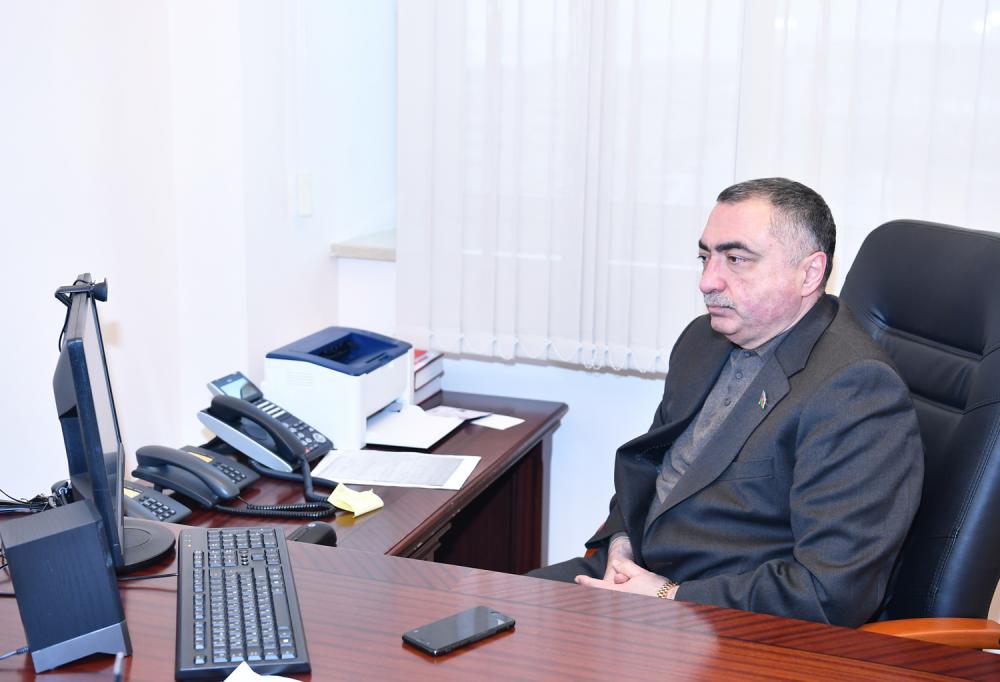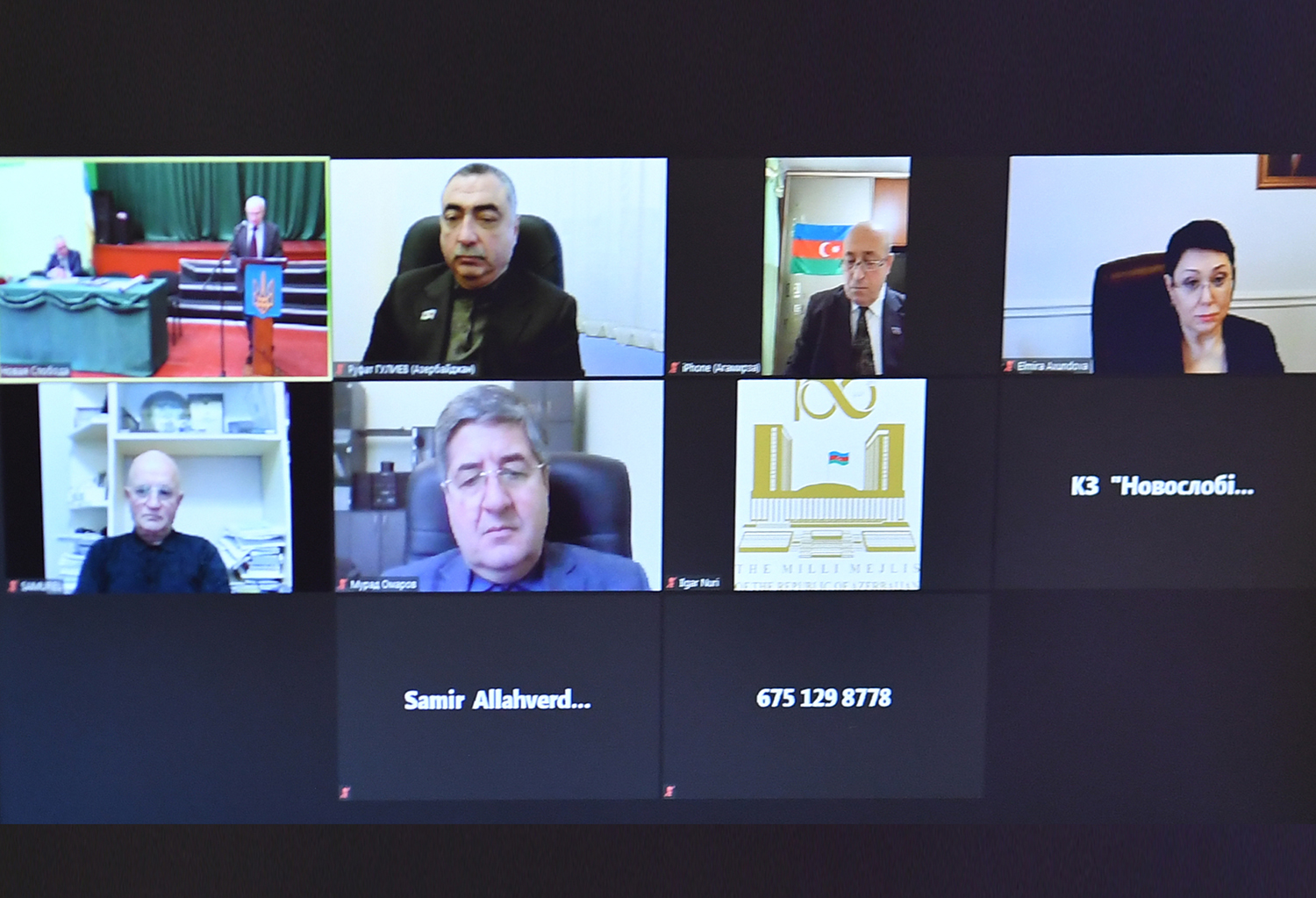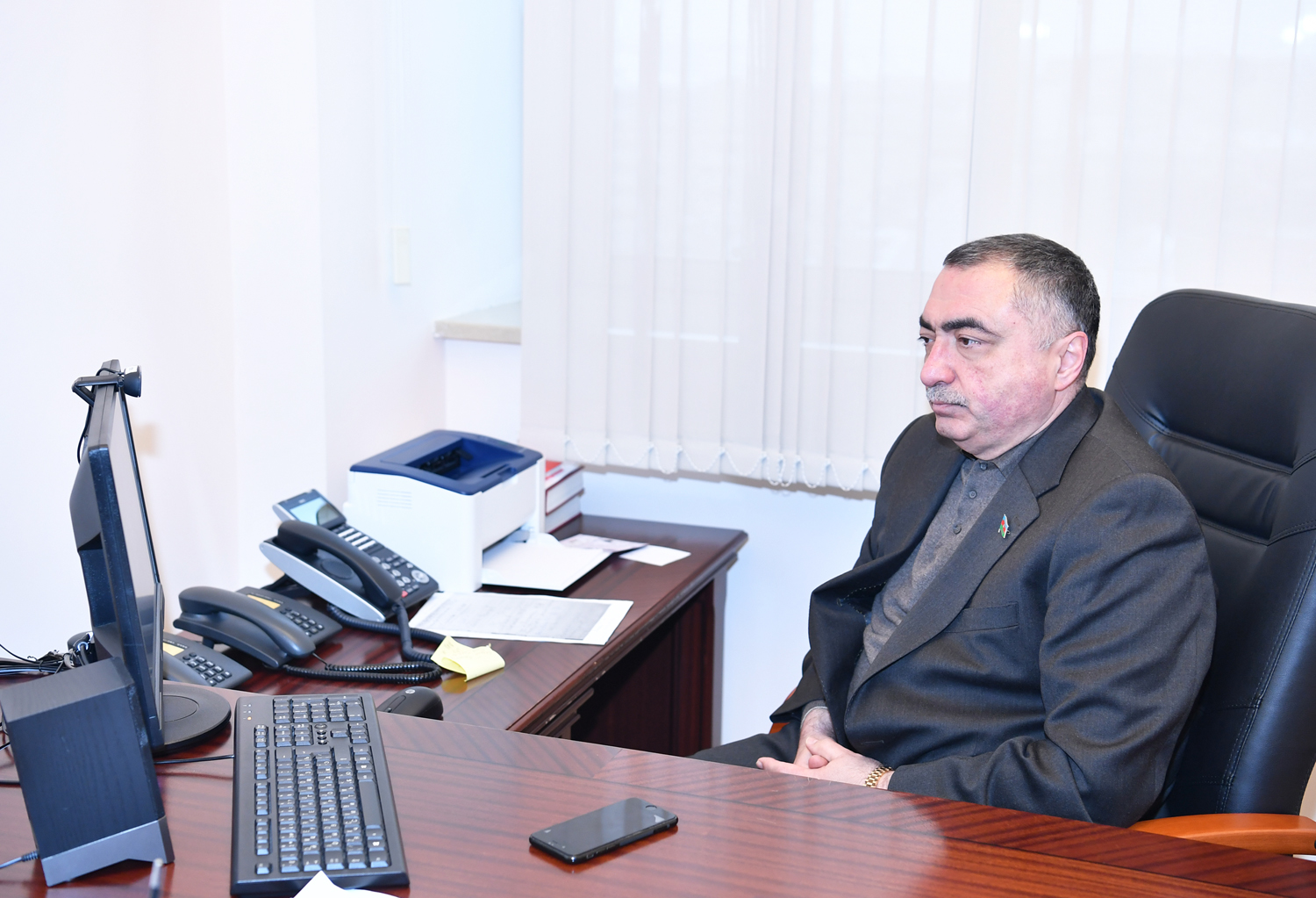Khojali Genocide Victims Commemorated at International Conference

Representatives of Azerbaijan joined the international applied research conference ‘War Crimes and Genocidal Offences on the Local Scale’ held in Ukraine online on 24 February. The event was moderated by Serghey Tupik, Director of Putyvl State Historical and Cultural Preserve.
Leader of the Azerbaijan-Ukraine Interparliamentary Contacts Working Group Professor Rufat Guliyev told the participants of the conference, amongst other things, of the countries and the US states that had already recognised the Khojali Genocide which had turned 29 this year. Every nation should remember the genocides burdening its history and ought to make sure the world never let the perpetrators of such atrocities pass any face control, according to Mr Guliyev. He reminded the gathering as he talked of the victory in the 44-day Patriotic War led by Azerbaijan’s Commander-in-Chief that the triumphant Azerbaijani Army had capped the combat with the occupiers’ eviction from the captured lands and making the national territory whole again. Then followed the urge to the participants and organisers of the conference to help the efforts made to have Ukraine’s Verkhovna Rada recognise the Khojali Genocide. Mr Guliyev said he was hopeful that the friendly Ukrainian nation would stand for the just cause of Azerbaijan.
Next, the Ukrainian intelligentsia, prominent academics and clerics read their reports themed ‘The Tragedy of Novaya Sloboda’, ‘The Baturin Genocide over the Centuries’, ‘The Koriukivka Tragedy...’, ‘Koriukivka: The Holocaust Memory’, ‘Novaya Sloboda: The Village Where the Goryuns Live’, ‘The Problem of Preserving the Goryun Heritage in the 20th Century’ and so forth. They also spoke of the war crimes and massacres unleashed by the German Nazis in Ukraine, Belarus, the Czech Republic, France and other countries during 1941-1945. The presentations were accompanied by appropriate photographs and video demonstrations.
Yashar Alkhasov, Assistant Professor at the Baku Slavonic University, tabled his report ‘Khojali: Preserving the Heritage…’ and the sixth and seventh-convocation Verkhovna Rada MP and Secretary of the Ukraine-Azerbaijan Interparliamentary Co-operation Group Oleg Medunitsa read out his own presentation ‘Genocide Rooted in Interethnic Hostility’.
Azerbaijan’s Extraordinary and Plenipotentiary Ambassador to Ukraine Elmira Ahundova supplied the conference participants with exhaustive information about the Khojali Genocide, mentioned how certain states suffered from separatism and declared that the nations of the world should combine to counter separatism and aggressive nationalism together so that no such tragedies were repeated in the future. The Armenian Fascism did not fail to show its true colours during Garabagh War II, either, when, just like thirty years back, the Armenian Fascists were killing civilians and firing at the Azerbaijani towns lying rather far from Garabagh – and doing so using prohibited weapons, too. He who steals honey should beware of the sting: the well-deserved punishment will catch up with the criminals in the end, Mrs Ahundova promised.
Then, the conference participants were shown the documentary film ‘KHOJALI: The Genocidal Act in the Bloody February of the Year 1992’ that was introduced by the Consul Afghan Salmanov. A minute of silence in memoriam followed the documentary: fell silent the attending academics and political figures, representatives of the Sum Province administration, dwellers of Novaya Sloboda and Koriukivka, officials of the state preserves and history museums of the towns of Putyvl, Baturin and Chernihiv and participants from the Ukrainian Institute of National Remembrance.
The conference was concluded by passing a resolution.
The Press and Public Relations
Department The Milli Majlis





